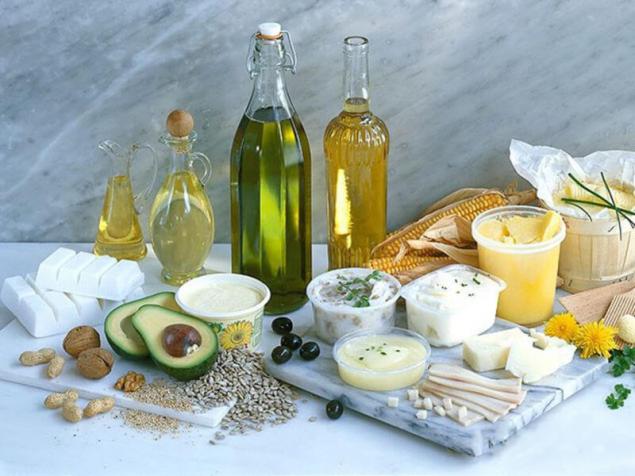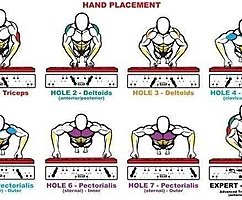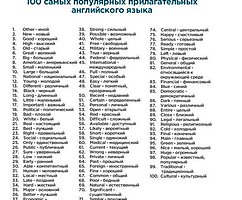9 signs that you need to eat MORE fat
 Bashny.Net
Bashny.Net
Suppose that you have already changed your diet, refused sugar, bread and flour products has sharply reduced carbohydrate consumption. But do not feel very well notice various signs that something you are doing wrong.
Perhaps the reason that you are not eating enough fat.
This is quite a common phenomenon for several decades, we are constantly hammered into your head that fats are evil, the cause of obesity and numerous health problems. There is therefore nothing surprising in the fact that many people, cutting carbohydrates, continue to treat the fats with suspicion and try to eat them less.
There are many descriptions of "nizkouglevodna", full of dishes of non-fat cheese and "zero" yogurt. Not to mention the Dukan diet, built on the simultaneous restriction of carbohydrates and fats.

To make it easier to understand whether you have enough fat in your diet, we publish a translation of an article by Mark Sisson — author of one of the most interesting blogs about healthy eating — Mark's Daily Apple. In italics in brackets — our comments and explanations where necessary.
So, nine signs that you need to eat more fat:

1. You have dry skin
Dry skin can mean many things:
But this often means that you just need eat more fats. How so? Sebum (sebum) is a natural moisturizer body and we produce it ourselves using the available us fatty acids. Some of these acids we take from our own reserves in the body, but others must come from food, especially when we are not actively consumed body fat, or when they are not too large. Increase fat intake — a simple and painless way to improve the moisture level of the skin.
2. You're on a low carbohydrate diet, but feel so-so
Fat is still a dirty word in many circles. This is common — people reduce the consumption of carbohydrates, not realizing that we need to increase fat intake to compensate for the loss in received energy. They begin to lose weight, but the exhaustion, lack of energy, malaise and headaches complicate adherence to the plan.
3. You hard physical activity
People tend to think that to improve athletic performance you need to increase the intake of carbohydrates. Depending on the specifics of the sport, it is in certain cases, it may help. But another macronutrient needed plays a big role during exercise: fats, especially saturated. We use saturated fat (and often contained cholesterol) as a precursor for steroid hormones such as testosterone.

Without an adequate intake of saturated fat, we can't produce enough testosterone. The lack testosterone, it is difficult to build muscle, recover from exercise, or enjoy a healthy libido.
4. You have aching joints
Joint pain can mean many things. Maybe you are not moving or moving incorrectly, or around the joint are too tight muscles and fascia. Maybe you have arthritis. Maybe it's the trauma.
Whatever the cause, reducing inflammation through proper diet can really help reduce pain and positively affect the causes of their effects.
When I starts to hurt the knee or hip, I eat more fatty fish, or increase for a few days the consumption of fish oil. Fatty acids omega-3 possess anti-inflammatory properties and can improve symptoms in patients with rheumatoid arthritis. If the data of the studies of osteoarthritis in animals will prove true for humans, omega-3 can improve the healing process and restore joint function after joint injuries.
5. You have low HDL-cholesterol
Regular exercise, moderate alcohol consumption, losing weight — all increase in HDL (the so-called "good cholesterol", or HDL) — and experts believe this is the correct methods. But increased consumption of fats, particularly saturated and monounsaturated, also can raise HDL levels.
This is not surprising, since physical activity and weight loss activates the process of oxidation of fat body reserves, which is equivalent to eating portions of (human) animal fat. Perhaps this is one reason why reducing the fat reserves of the body are so good to us and has such a positive impact on many markers of health is inadvertently puts us on a diet high in animal fats (regardless of what we eat to lose weight).
Some fats raise HDL better than others. Saturated fats contained in coconut oil, raise HDL and polyunsaturated fats contained in soy oil (also sunflower, corn and most vegetable oils) — lower it.
6. You are feeling of fullness after eating
Follow a low-fat diet is known for that make his followers gluttonous, while a low-carb high diet contribute to suppressing excess appetite. Most people attribute this to an increased intake of proteins. But I'm sure it's an incomplete picture.

Saturated fats help to maximize the feeling of satiety, via the satiety hormone PPY, whereas monounsaturated fats contained in olive oil have positive effects on another satiety hormone GLP — 1.
7. You try to love vegetables
Edible vegetables — a necessary component for optimum health. Can ten servings of green leafy vegetables a day is not necessary, in some quantity they really help to Supplement the diet and provide you important nutrients that are difficult to obtain from other sources.
The problem arises with the concept of "edible". By themselves, the vegetables are not too tasty — at least until you develop a love for them. And then the fat would be nice. Fat turns vegetables into a delicious side dish. Steamed broccoli — tolerant boring. Add butter, grass-fed, salt, black pepper and they become irresistible.
Little children, with their instinctive distrust of plant foods, develop a taste even for the dreaded Brussels sprouts faster if to add to her fat.
Vegetables are full of vitamins, minerals, antioxidants and soluble fiber. They are one of the most rewarding things you can eat, but they should really have.
8. Your mind seems blunted
The transition to a low-carb diet may be associated for some people with a period of mental "dulling". You eat less carbs, which means less glucose available for the brain and your metabolic mechanisms not yet had time to adjust for the efficient burning of fats and ketones for energy. But what if this effect persists?
A number of studies shows that consumption of particular fatty acids with medium chain length (MCT — medium chain triglycerides) in a special refined MCT oil or coconut oil, can improve cognitive function by increasing ketone availability.
Interestingly, access to ketones (whether through ketosis, or MCTS) does not harm the brain's ability to utilize glucose. When access of the brain to ketone increases, the same happens with consumption of glucose. Yes, and celevoe oil containing omega-3 in phospholipid form, might also contribute to the improvement of cognitive functions.
9. You are going to walk and drink
If you plan to drink more than one or two servings of alcohol, a preliminary increase in the consumption of some types of fatty acids and decrease consumption of others may protect your liver from damage, reduce the toxicity and weaken the subsequent hangover. Saturated fats can best protect the liver, especially the fats in dark chocolate and coconut/MCT oil.
Linoleic acid/omega 6 (sunflower oil) — the most dangerous by the consumption of alcohol.
You will achieve the best results if you eat more saturated fat and less linoleic acid for several days (or weeks, months, years) before drinking, because the change in fat composition of the liver takes a few days.

Afterword
Increasing the intake of fat, not forget that it must be proper healthy fats. The rules are pretty simple:
Also interesting: the TRANS fats are the true culprits of developing diseases of the heart and blood vessels
Learn why we need fat: 4 functions in the body
Source: lchf.ru/13479
Perhaps the reason that you are not eating enough fat.
This is quite a common phenomenon for several decades, we are constantly hammered into your head that fats are evil, the cause of obesity and numerous health problems. There is therefore nothing surprising in the fact that many people, cutting carbohydrates, continue to treat the fats with suspicion and try to eat them less.
There are many descriptions of "nizkouglevodna", full of dishes of non-fat cheese and "zero" yogurt. Not to mention the Dukan diet, built on the simultaneous restriction of carbohydrates and fats.

To make it easier to understand whether you have enough fat in your diet, we publish a translation of an article by Mark Sisson — author of one of the most interesting blogs about healthy eating — Mark's Daily Apple. In italics in brackets — our comments and explanations where necessary.
So, nine signs that you need to eat more fat:

1. You have dry skin
Dry skin can mean many things:
- allergic reaction
- an imbalance of the intestinal flora,
- abrasive chemicals.
But this often means that you just need eat more fats. How so? Sebum (sebum) is a natural moisturizer body and we produce it ourselves using the available us fatty acids. Some of these acids we take from our own reserves in the body, but others must come from food, especially when we are not actively consumed body fat, or when they are not too large. Increase fat intake — a simple and painless way to improve the moisture level of the skin.
2. You're on a low carbohydrate diet, but feel so-so
Fat is still a dirty word in many circles. This is common — people reduce the consumption of carbohydrates, not realizing that we need to increase fat intake to compensate for the loss in received energy. They begin to lose weight, but the exhaustion, lack of energy, malaise and headaches complicate adherence to the plan.
3. You hard physical activity
People tend to think that to improve athletic performance you need to increase the intake of carbohydrates. Depending on the specifics of the sport, it is in certain cases, it may help. But another macronutrient needed plays a big role during exercise: fats, especially saturated. We use saturated fat (and often contained cholesterol) as a precursor for steroid hormones such as testosterone.

Without an adequate intake of saturated fat, we can't produce enough testosterone. The lack testosterone, it is difficult to build muscle, recover from exercise, or enjoy a healthy libido.
4. You have aching joints
Joint pain can mean many things. Maybe you are not moving or moving incorrectly, or around the joint are too tight muscles and fascia. Maybe you have arthritis. Maybe it's the trauma.
Whatever the cause, reducing inflammation through proper diet can really help reduce pain and positively affect the causes of their effects.
When I starts to hurt the knee or hip, I eat more fatty fish, or increase for a few days the consumption of fish oil. Fatty acids omega-3 possess anti-inflammatory properties and can improve symptoms in patients with rheumatoid arthritis. If the data of the studies of osteoarthritis in animals will prove true for humans, omega-3 can improve the healing process and restore joint function after joint injuries.
5. You have low HDL-cholesterol
Regular exercise, moderate alcohol consumption, losing weight — all increase in HDL (the so-called "good cholesterol", or HDL) — and experts believe this is the correct methods. But increased consumption of fats, particularly saturated and monounsaturated, also can raise HDL levels.
This is not surprising, since physical activity and weight loss activates the process of oxidation of fat body reserves, which is equivalent to eating portions of (human) animal fat. Perhaps this is one reason why reducing the fat reserves of the body are so good to us and has such a positive impact on many markers of health is inadvertently puts us on a diet high in animal fats (regardless of what we eat to lose weight).
Some fats raise HDL better than others. Saturated fats contained in coconut oil, raise HDL and polyunsaturated fats contained in soy oil (also sunflower, corn and most vegetable oils) — lower it.
6. You are feeling of fullness after eating
Follow a low-fat diet is known for that make his followers gluttonous, while a low-carb high diet contribute to suppressing excess appetite. Most people attribute this to an increased intake of proteins. But I'm sure it's an incomplete picture.

Saturated fats help to maximize the feeling of satiety, via the satiety hormone PPY, whereas monounsaturated fats contained in olive oil have positive effects on another satiety hormone GLP — 1.
7. You try to love vegetables
Edible vegetables — a necessary component for optimum health. Can ten servings of green leafy vegetables a day is not necessary, in some quantity they really help to Supplement the diet and provide you important nutrients that are difficult to obtain from other sources.
The problem arises with the concept of "edible". By themselves, the vegetables are not too tasty — at least until you develop a love for them. And then the fat would be nice. Fat turns vegetables into a delicious side dish. Steamed broccoli — tolerant boring. Add butter, grass-fed, salt, black pepper and they become irresistible.
Little children, with their instinctive distrust of plant foods, develop a taste even for the dreaded Brussels sprouts faster if to add to her fat.
Vegetables are full of vitamins, minerals, antioxidants and soluble fiber. They are one of the most rewarding things you can eat, but they should really have.
8. Your mind seems blunted
The transition to a low-carb diet may be associated for some people with a period of mental "dulling". You eat less carbs, which means less glucose available for the brain and your metabolic mechanisms not yet had time to adjust for the efficient burning of fats and ketones for energy. But what if this effect persists?
A number of studies shows that consumption of particular fatty acids with medium chain length (MCT — medium chain triglycerides) in a special refined MCT oil or coconut oil, can improve cognitive function by increasing ketone availability.
Interestingly, access to ketones (whether through ketosis, or MCTS) does not harm the brain's ability to utilize glucose. When access of the brain to ketone increases, the same happens with consumption of glucose. Yes, and celevoe oil containing omega-3 in phospholipid form, might also contribute to the improvement of cognitive functions.
9. You are going to walk and drink
If you plan to drink more than one or two servings of alcohol, a preliminary increase in the consumption of some types of fatty acids and decrease consumption of others may protect your liver from damage, reduce the toxicity and weaken the subsequent hangover. Saturated fats can best protect the liver, especially the fats in dark chocolate and coconut/MCT oil.
Linoleic acid/omega 6 (sunflower oil) — the most dangerous by the consumption of alcohol.
You will achieve the best results if you eat more saturated fat and less linoleic acid for several days (or weeks, months, years) before drinking, because the change in fat composition of the liver takes a few days.

Afterword
Increasing the intake of fat, not forget that it must be proper healthy fats. The rules are pretty simple:
- More saturated fat — as animals (butter, dairy products, eggs, fatty meats) and plant — for example, from coconut oil. Quality palm oil to be afraid of is also not necessary, because mainly it consists of saturated and monounsaturated fats (where to find quality — a separate issue).
- More monounsaturated fats — olive oil, canola oil, cold-pressed Flaxseed oil, avocado.
- More polyunsaturated omega-3 fats — like animals (oily fish, seafood) and vegetable (flax oil, canola oil, cold-pressed Chia seed).
- Less linoleic acid and other polyunsaturated omega-6. A moderate amount of nuts and seeds won't hurt you, but sunflower and most other vegetable oils should be abandoned and certainly not use them for frying.
- Industrial TRANS fats — hydrogenated vegetable oils — should be completely excluded from the diet.published
Also interesting: the TRANS fats are the true culprits of developing diseases of the heart and blood vessels
Learn why we need fat: 4 functions in the body
Source: lchf.ru/13479
Tags
See also
7 signs that you caught a nice guy ... and not just another bastard
Signs that you're lying
Signs that you're lying
10 iron indication that it's time to change your life
15 signs that a friend went over to the trainings of personal growth
10 signs that you have time to get up and fired right now
10 signs that the man she loves ... or not
9 signs that you are able to achieve more than everyone else
That means that the wrinkles and spots in these places on the face.
















